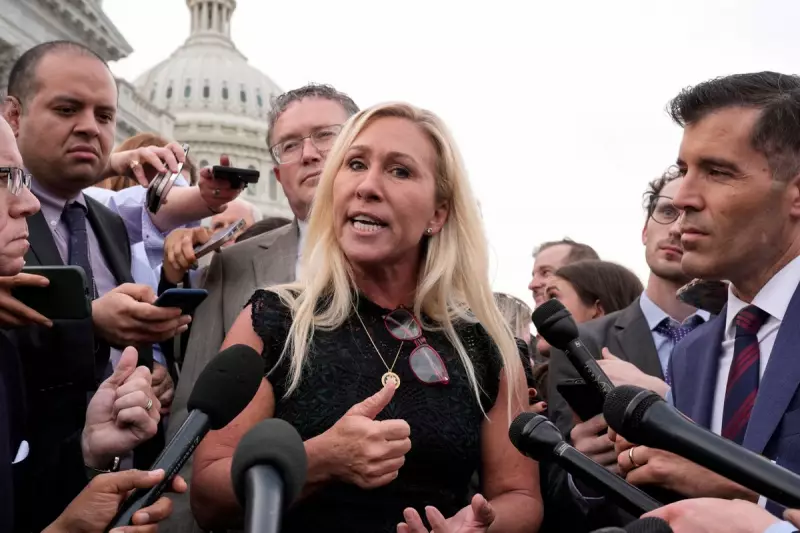
The political landscape in Washington DC has been thrown into disarray following the unexpected announcement from Congresswoman Marjorie Taylor Greene that she will resign her seat. The Georgia Republican's decision deals a significant blow to House Speaker Mike Johnson and former President Donald Trump, who already operate with a razor-thin majority in the House of Representatives.
The Precarious Numbers Game
Marjorie Taylor Greene revealed she will step down from Congress on 5 January, a move that follows years of friction with Speaker Johnson and comes after Donald Trump withdrew his endorsement. The Republican party currently holds 219 seats in the House, just one more than the 218 required to maintain a majority and pass legislation.
This narrow margin has already proven problematic. Earlier this year, the House passed the One Big, Beautiful Bill Act with exactly 218 votes, while two Republicans opposed it. In September, the government funding bill passed by a 217-212 margin, which only succeeded because two Democrats and one Republican were absent.
Upcoming Special Elections Compound the Problem
The situation becomes even more precarious when considering several imminent special elections. On 2 December, Tennessee's 7th district holds a special election for Mark Green's former seat. Although this Republican-leaning district voted for Trump by 22 points in 2024, Democrats have been outperforming expectations in recent special elections.
If Democrats manage an upset victory, their numbers would increase to 214 seats against the GOP's 219. Should Republicans hold the seat, they would have 220 seats until Greene's departure reduces them to 219 or 218.
The challenges continue into the new year. On 31 January, Texas holds a special election for the late Sylvester Turner's overwhelmingly Democratic seat, likely giving Democrats another seat. Then in April, New Jersey's 11th district special election is almost certain to go to a Democrat, bringing their total to 216 or 215 seats against the GOP's 218 or 219.
Legislative Consequences and Governing Headaches
These mathematical challenges have immediate practical consequences. In December, the Senate will vote on extending enhanced tax credits for the Affordable Care Act's health insurance marketplace. Every seat matters for Johnson to prevent rebellions within his party.
More urgently, the government faces another potential shutdown when funding expires on 31 January. The continuing resolution that recently reopened government only maintains operations until that date. With no votes to spare and Democrats gaining ground, Johnson has minimal room for negotiation.
Furthermore, the prospect of using reconciliation - the process that allowed passage of the One Big, Beautiful Bill without Democratic support - becomes increasingly unlikely with a one or two-seat majority. By the time Greene's reliably Republican seat is eventually filled, most members will likely be focused on campaigning rather than making difficult legislative decisions.
In her final act of defiance, Marjorie Taylor Greene has created an extended period of legislative uncertainty that will test the leadership of both Speaker Johnson and Donald Trump throughout the coming critical months.






